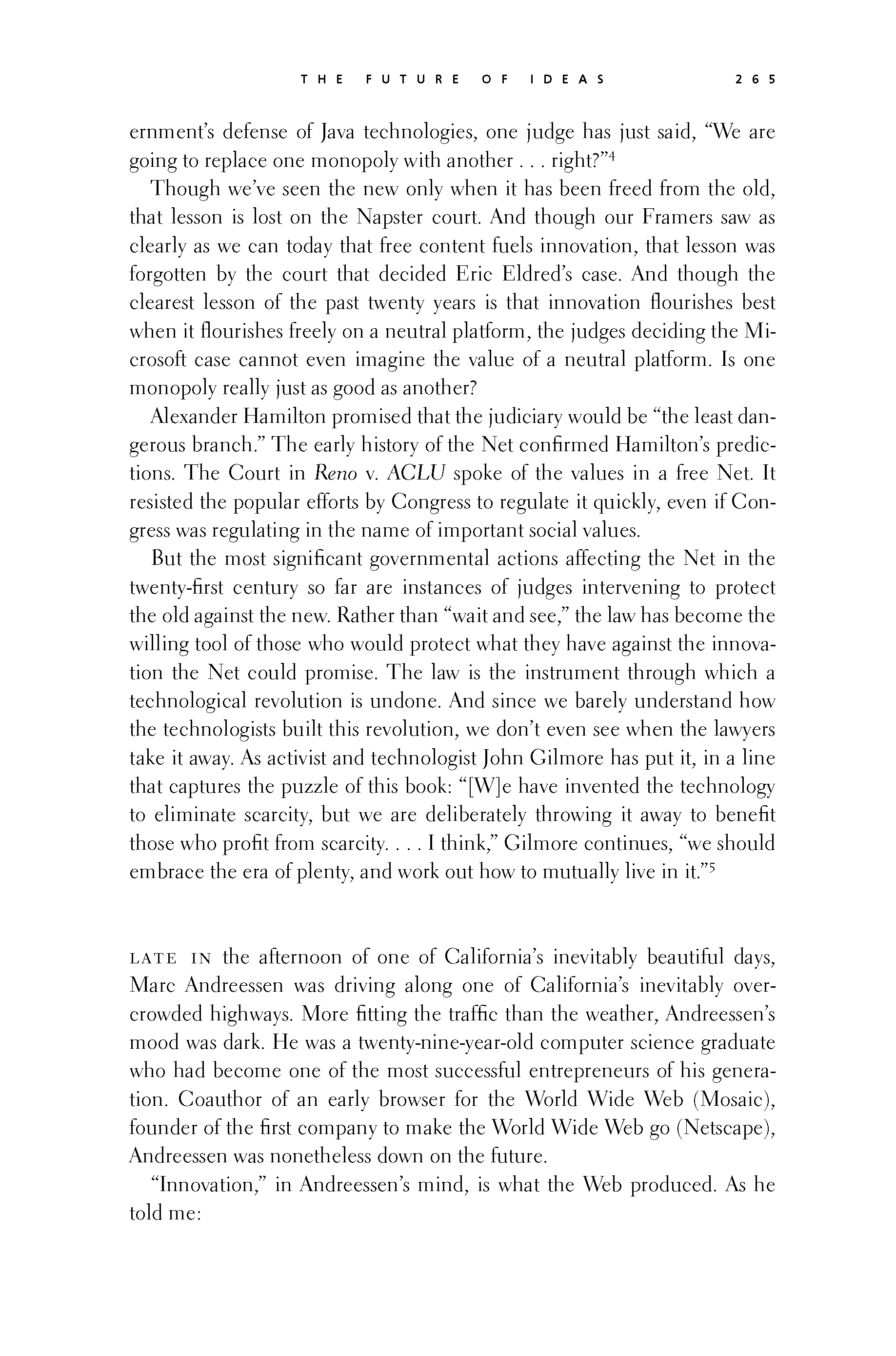 p264 _
-chap- _
toc-1 _
p265w _
toc-2 _
+chap+ _
p266
p264 _
-chap- _
toc-1 _
p265w _
toc-2 _
+chap+ _
p266
ernment's defense of Java technologies, one judge has just said, "We are
going to replace one monopoly with another... right?"[15-4]
Though we've seen the new only when it has been freed from the old,
that lesson is lost on the Napster court. And though our Framers saw as
clearly as we can today that free content fuels innovation, that lesson was
forgotten by the court that decided Eric Eldred's case. And though the
clearest lesson of the past twenty years is that innovation flourishes best
when it flourishes freely on a neutral platform, the judges deciding the Mi-
crosoft case cannot even imagine the value of a neutral platform. Is one
monopoly really just as good as another?
Alexander Hamilton promised that the judiciary would be "the least dan-
gerous branch." The early history of the Net confirmed Hamilton's predic-
tions. The Court in _Reno_ v. _ACLU_ spoke of the values in a free Net. It
resisted the popular efforts by Congress to regulate it quickly, even if Con-
gress was regulating in the name of important social values.
But the most significant governmental actions affecting the Net in the
twenty-first century so far are instances of judges intervening to protect
the old against the new. Rather than "wait and see," the law has become the
willing tool of those who would protect what they have against the innova-
tion the Net could promise. The law is the instrument through which a
technological revolution is undone. And since we barely understand how
the technologists built this revolution, we don't even see when the lawyers
take it away. As activist and technologist John Gilmore has put it, in a line
that captures the puzzle of this book: "[W]e have invented the technology
to eliminate scarcity, but we are deliberately throwing it away to benefit
those who profit from scarcity... I think," Gilmore continues, "we should
embrace the era of plenty, and work out how to mutually live in it."[15-5]
///\\\
Late in the afternoon of one of California's inevitably beautiful days,
Marc Andreessen was driving along one of California's inevitably over-
crowded highways. More fitting the traffic than the weather, Andreessen's
mood was dark. He was a twenty-nine-year-old computer science graduate
who had become one of the most successful entrepreneurs of his genera-
tion. Coauthor of an early browser for the World Wide Web (Mosaic),
founder of the first company to make the World Wide Web go (Netscape),
Andreessen was nonetheless down on the future.
"Innovation," in Andreessen's mind, is what the Web produced. As he
told me:
[[265]]
p264 _
-chap- _
toc-1 _
p265w _
toc-2 _
+chap+ _
p266